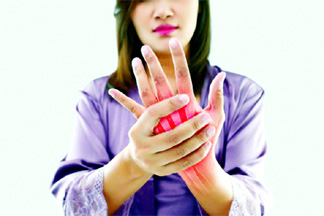
Rheumatoid arthritis (RA) is often perceived as a disease that affects older people but it can also have a significant impact on young adults where the onset of RA in the late teens or early twenties can dramatically alter the trajectory of life for these individuals. According to health experts, youngsters with RA may find themselves navigating a world of chronic pain, fatigue and limited physical abilities.
In an interview with HT Lifestyle, Dr Divya K Lala, Consultant Rheumatologist at Medicover Hospitals in Navi Mumbai, shared, “One major way that rheumatoid arthritis impacts young adults is through career choices. Moreover, the emotional toll of living with rheumatoid arthritis as a young adult cannot be underestimated. It is common for individuals in this age group to experience feelings of isolation, frustration, and sadness due to the challenges posed by the disease. They may struggle to maintain relationships with friends who do not understand the extent of their limitations or face difficulties dating due to concerns about being judged based on their health condition.”
The symptoms
According to Dr Divya K Lala, while the signs of RA in young people may be similar to those experienced by adults, there are a few key differences to be aware of. She highlighted, “One common symptom of RA in youngsters is joint pain and swelling, particularly in the hands and feet. This can make it difficult for them to participate in activities such as sports or even simple tasks like writing or gripping objects. Another indication may be morning stiffness that lasts longer than an hour, making it challenging for children to get up and get ready for school. In some cases, fatigue may also be present, making youngsters feel tired and lacking energy throughout the day. By recognizing these symptoms of RA in youngsters early on, prompt medical intervention and management strategies can be put into place to help alleviate the impact on their daily lives.”
The treatment
Dr Divya K Lala concluded, “The primary objectives in managing RA are to restore functionality and effectively alleviate symptoms and inflammation. Treating RA in young people requires a multifaceted approach that encompasses medication management, lifestyle changes, emotional support, and regular monitoring by the experts. By taking medications alongside physical therapy interventions tailored to their unique needs and preferences. Physical therapy plays a vital role in managing RA in youngsters. It helps improve joint flexibility, muscle strength, and overall function while also providing education on techniques for joint protection. Exercise, eat well, and maintain an optimum weight to keep the symptoms of arthritis under control.” Source: HT





Be the first to comment